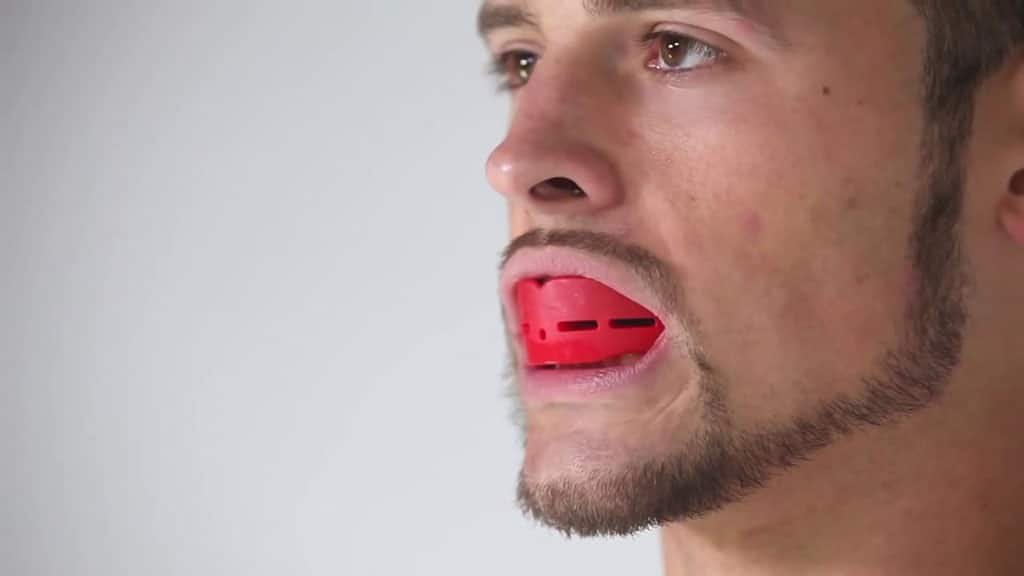Introduction
Hey there! So, let’s be honest—when’s the last time you gave your mouth guard a proper clean? If you’re like most people, it’s probably somewhere between “a while ago” and “wait… I was supposed to clean it?”
Trust me, I’ve been there. You slip it in every night or before a game and think, “Eh, it still looks fine.” But let’s be real—it’s been marinating in your saliva and bacteria. Yuck, right?
That’s why I put together this full guide with real, practical mouth guard cleaning tips to help you keep that little guy fresh, germ-free, and lasting longer. Whether you’re using a night guard, a sports mouthpiece, or something in between—this one’s for you.
So, grab a cup of coffee (or water—you know, dentist-approved stuff ), and let’s dive into the world of guard hygiene.
Why Proper Mouth Guard Cleaning Matters
Keeping your guard clean is more than just keeping it from smelling funky. It’s about protecting your health, your wallet, and your smile.
Bacteria and Mold—Yikes!
Think about it—your mouth guard sits in your mouth for hours. It absorbs saliva, traps food particles, and hangs out in the perfect warm, moist environment for bacteria and fungi. If not cleaned regularly, your mouth guard could lead to:
- Gum infections
- Bad breath
- Mouth sores
- Respiratory problems (yep, that’s real!)
Can you imagine breathing in mold spores every night? Ugh. No thanks.
Poor Cleaning Wears It Out Faster
Let’s face it—mouth guards aren’t exactly cheap, especially if they’re custom-made. Improper cleaning (or none at all) can warp the plastic, degrade the material, or cause odors that never go away.
Clean = Comfort
A clean guard just feels better in your mouth. It smells fresh, fits right, and doesn’t leave a weird taste behind. That peace of mind? It’s honestly priceless.
Daily Cleaning Routine: Quick and Easy Steps
You don’t need a PhD in dentistry to keep your guard clean. You just need a simple daily ritual that takes under 5 minutes.
Rinse Immediately After Use
The moment you take it out, rinse it under cool or lukewarm water. This removes surface saliva and food particles before they harden.
Don’t use hot water. It can warp the material!
Gently Brush It
Use a soft-bristle toothbrush (one just for your guard!) and a mild cleanser:
- Gentle liquid soap (unscented)
- Non-abrasive toothpaste
- Baking soda + water paste
Lightly scrub every surface—inside, outside, and all crevices.
Tip: Avoid whitening toothpaste. It’s too harsh and can scratch the surface.
Rinse Again and Dry
After scrubbing, rinse thoroughly to remove any residue. Then:
- Pat dry with a clean towel or paper towel
- Let it air-dry on a clean surface for 30+ minutes
Never store it wet. Moisture = bacteria paradise.
Store It Properly (More on that soon!)
Bonus Tip:
Keep a second brush near your sink just for your guard. That way, it becomes part of your morning/night routine.
Deep Cleaning Methods (Weekly/Bi-weekly)
Even if you clean it daily, your guard needs a deep cleanse every 7–10 days. Here are the safest ways to do it:
Denture or Retainer Cleaning Tablets
Drop a fizzy tablet into a cup of warm water, soak your guard for 5–10 minutes, rinse thoroughly, and dry.
Safe for most materials
Don’t soak overnight or longer than directed
Vinegar and Hydrogen Peroxide Soak (Natural DIY)
- Soak in white vinegar for 30 minutes
- Rinse
- Soak in 3% hydrogen peroxide for another 30 minutes
- Rinse and dry completely
Best for killing bacteria, mold, and odor
Not for soft rubber guards—they may degrade
Baking Soda Scrub
Make a paste with baking soda + water. Scrub with a toothbrush for 2–3 minutes, rinse, and dry.
Great for eliminating odor and buildup!
What Not to Use:
- Bleach or alcohol
- Boiling water
- Dishwasher
- Vinegar + baking soda together (they cancel each other out)
Storage & Case Care: Don’t Skip These!
How you store your guard is just as important as how you clean it.
Ventilation is Key
Store your guard in a vented case to allow it to dry completely. Never seal it in a bag or airtight box while still damp.
Moisture leads to bacteria—and we don’t want that.
Clean the Case Regularly
Cases can get nasty fast. Wash it every few days with soap and water, then air dry.
Where to Store It
- Cool, dry place
- Away from sunlight or heat
- Out of reach from pets and kids (they love chewing on these!)
Avoid:
- Bathroom counters (humid and germy)
- Direct sunlight
- Sealed plastic bags
Signs It’s Time to Replace Your Mouth Guard
No matter how well you care for it, mouth guards aren’t forever. Keep an eye out for these red flags:
It’s Visibly Damaged
- Cracks or tears
- Holes or bite-through spots
- Edges becoming jagged
It Smells—Even After Cleaning
Persistent odor means bacteria has set up shop in micro-cracks you can’t see.
It Feels Off
- Doesn’t fit snugly
- Causes discomfort or new pressure
- Doesn’t stay in place
It’s Been Over a Year (for heavy users)
If you grind your teeth nightly or use it for sports often, you’ll likely need a new one every 6–12 months.
Special Considerations
Different types of guards have different needs. Let’s break it down:
Sports Mouth Guards
Usually made from thicker rubber or EVA plastic.
- Clean like normal
- More prone to odor—deep clean often
- Replace frequently (seasonally or if distorted)
Night Guards for Grinding (Bruxism)
Usually thinner, made from acrylic or dual-laminate.
- May require gentler care
- Soaking too long can cause warping
- Check with your dentist for custom-guard instructions
Kids’ Guards
- Clean daily (make it fun!)
- Replace often—kids grow fast
- Let them pick their case to feel ownership
Braces or Retainers
- Use orthodontist-approved methods
- Avoid vinegar or peroxide—may degrade orthodontic plastic
Pro Tips for Building Long-Term Habits
You’re not going to clean it every day perfectly—and that’s okay. The goal is consistency, not perfection.
Stack It With Other Habits
- Clean after brushing teeth
- Dry while you’re in the shower
- Clean case when you clean the sink
Set Reminders
Use your phone to schedule:
- Weekly deep clean
- Monthly case clean
- Yearly replacement
Travel Kit Must-Haves
Always carry:
- Travel case (vented)
- Travel-size soap
- Toothbrush just for guard
- Zip bag (for backup)
Make It a Family Thing
Have multiple guard users in the house? Create a shared cleaning day—make it a “Guard Party” with music!
Quick-Reference Cleaning Chart
| Action | Frequency | What to Use | Notes |
| Rinse after use | Daily | Cool/lukewarm water | Prevents quick bacteria growth |
| Light brush clean | Daily | Soft toothbrush + mild soap | No whitening or abrasive pastes |
| Air dry | Daily | Towel & open surface | Never store wet |
| Deep clean | Weekly | Tablets, vinegar/peroxide, baking soda | Pick your method |
| Case cleaning | Weekly | Soap and warm water | Let it dry too |
| Guard replacement | 6–12 months | New mouth guard | Check fit & condition |
Conclusion
Let’s wrap this up.
Taking care of your mouth guard doesn’t have to be some big, complicated ritual. It’s really just about building a simple habit that protects your health, keeps your mouth feeling fresh, and helps your gear last longer.
I mean, wouldn’t it feel amazing to pop in your guard at night and know it’s clean, dry, and bacteria-free? That’s peace of mind right there.
So now, armed with these mouth guard cleaning tips, you’re ready to take charge. Start today. Clean it. Dry it. Store it right.
Your teeth (and your nose) will thank you.
Please read more about the best boxing mouth guard.
FAQs
Can I use toothpaste to clean my mouth guard?
Yes, but only if it’s a gentle, non-abrasive toothpaste. Avoid whitening or tartar control varieties—they can scratch and damage the surface.
How long should I soak my mouth guard?
Most deep soaks (tablets or DIY methods) should be 5–30 minutes depending on the product. Never soak overnight unless explicitly stated by the product or your dentist.
Can I boil my guard to sterilize it?
No! Boiling can warp the shape. Use warm—not hot—water, and clean with safe disinfectants like hydrogen peroxide or denture tablets.
My guard smells bad even after cleaning. What do I do?
Try a deep clean using vinegar + hydrogen peroxide or denture tablets. If the smell persists, it might be time to replace it.
How often should I replace my mouth guard?
If worn nightly or in sports, aim to replace it every 6–12 months or when you see signs of wear, damage, or odor.



